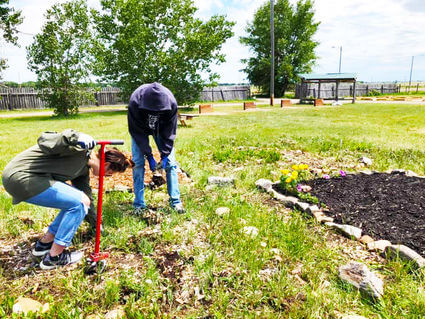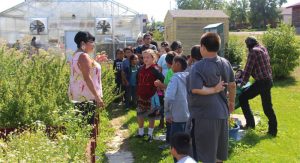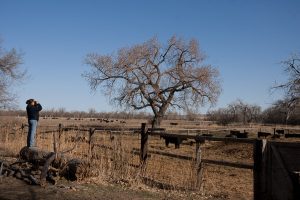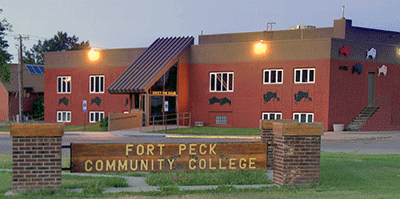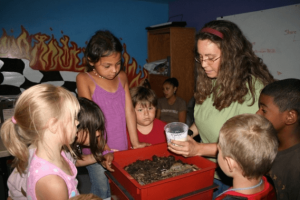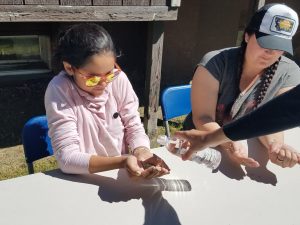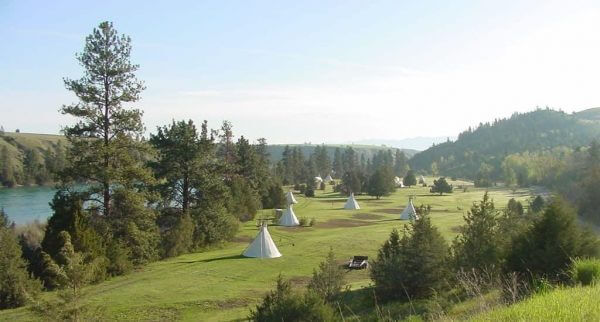The Blackfeet Nation is located in northwestern Montana, adjacent to the Canadian border, east of Glacier National Park. At 3,000 square miles, it is larger than the state of Delaware.
Activities
Agriculture is the primary economic industry on the Blackfeet Reservation with some 800 producers managing 1.5 million acres of land. Limited access to credit, capital and lack of a credit history has prevented beginning farmers and ranchers from returning to family farms, which threatens the sustainability of agriculture on the reservation. The extension program offers lifelong learning to individuals through unbiased, research-based education and information that integrates learning, discovery, and engagement. This, in turn, strengthens the social, economic and environmental fabric of the communities.
Highlights
As farmers and ranchers age, it is becoming more important for Blackfeet youth to acquire the knowledge about agriculture and natural resource programs that will help them to be successful farmers and ranchers in the future. Extension specialists are an integral part of that educational process, providing research-based knowledge to an audience who may not otherwise have that learning opportunity. Support from, and engagement with, the tribal government and elders is integral to growing agriculture on the Blackfeet Reservation as is collaboration with the tribal business counsel to help stimulate economic development.
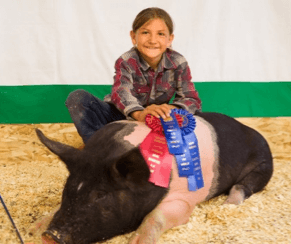
4-H program
The 4-H program was established on the Blackfeet Reservation over 20 years ago and has grown from four participants to more than 100. With the assistance of partners and local volunteers, tribal extension designed 4-H programs that were a good cultural fit. This included the establishment of a unique local fair where every youth’s accomplishments could be recognized. The students soon became more engaged and, as a result, they are staying involved in 4-H through graduation rather than dropping out in middle school.
A valuable resource
FRTEP is considered a valuable, trusted community resource. Community members recognize that the Blackfeet Extension office serves an important function in the community with the capacity to connect people to other programs and services. FRTEP has utilized a dedicated cadre of volunteers who design innovative programs specifically for youth, helping them to forge a connection between the land and its natural resources. These volunteers have managed a natural resource youth camp for the past 16 years.
Montana Junior Ag Loan Program
The Montana Junior Ag Loan Program, administered by the Montana Department of Agriculture, assists and encourages youth and new farmers and ranchers in financing agricultural projects. The program has helped revive agricultural traditions on the Blackfeet Reservation and given participants the opportunity to build their capital and credit. They can continue to borrow through other loan programs such as the Farm Service Agency (FSA) and Community Development Financial Institutions (CDFI’s). Many have built up their cattle herds and collateral and have been able to establish cattle operations. Several participants have used the profits from those operations to fund their college education.
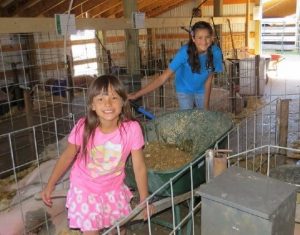
Contact Information
Verna Billedeaux – Extension Educator
Phone Number
406-338-2650
vbilledeaux@montana.edu
